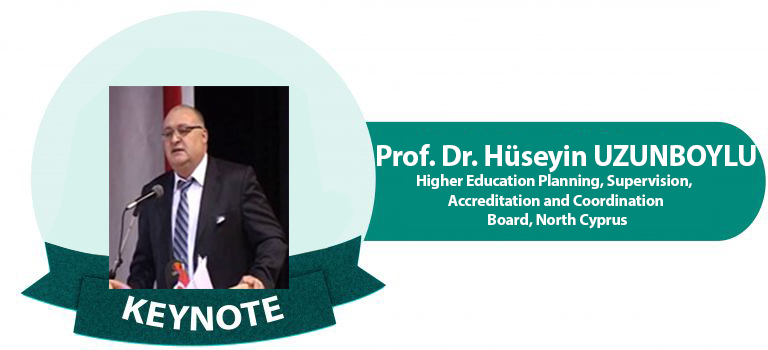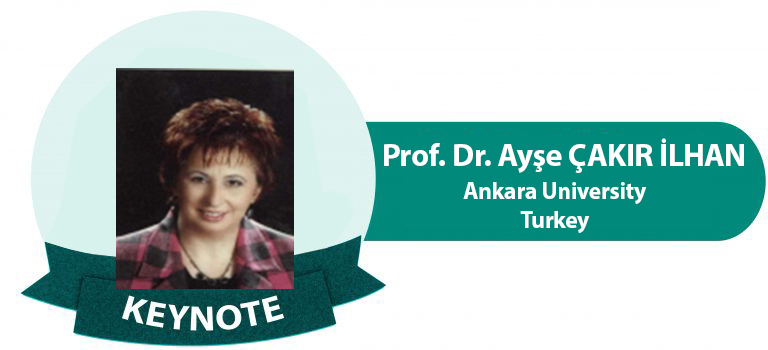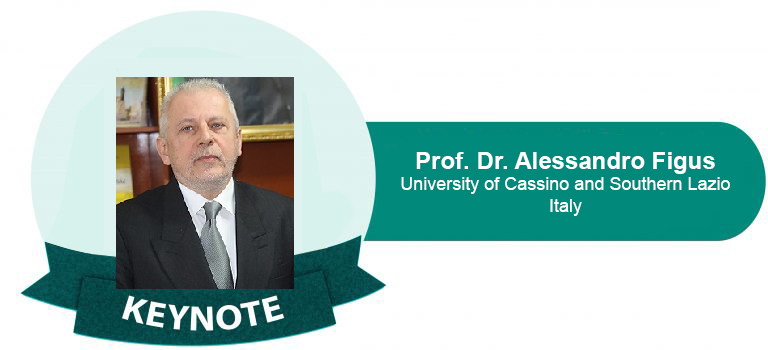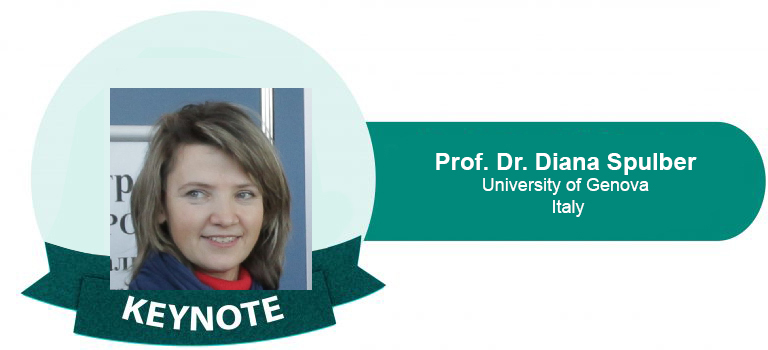
Keynote Title: Will be announce….
Abstracts: Will be announce…
Bio: Huseyin Uzunboylu graduated from Anadolu University, completing a degree in BSc Educational Communicating and Planning in 1991. He graduated from Ankara University; completed a degree in MA Curriculum and Instruction in 1995 and completed PhD in area of Educational Technology in 2002. He became Assistant Professor in 2013, Associate Professor in 2015 and Professor of Educational Technology in 2010 at Cyprus Near East University.He was elected to member of “Higher Education Planning, Supervision, Accreditation and Coordination Board” by the Republican of Parliament in November in 2019.

Keynote Title: Will be announce….
Abstracts: Will be announce….
Bio: After working as an arts teacher for 10 years in secondary education institutions, she started career academic life in 1989 as a research assistant at the Educational Programs and Teaching (Fine Arts Education) Department of the Faculty of Educational Sciences at Ankara University. She worked as a lecturer, associate professor and professor at the Educational Programs and Teaching (Fine Arts Education) Department of the Faculty of Educational Sciences, Ankara University. She served as Vice Dean, Director of Educational Sciences Institute, Dean of Faculty of Educational Sciences and Founding Dean of Faculty of Fine Arts. She is still working as a faculty member and head of the Department of Museum Education and Department of Fine Arts in the Faculty of Educational Sciences. Prof. Ayşe Çakır İlhan has her main focus on art education, museum education. creativity, drama education, teacher training .
aysecakirilhan@gmail.com / ilhan@ankara.edu.tr

Keynote Title: “Inclusion and sport: new approach in global time.”
Abstract:This manuscript aims to examine the relationship between sport and inclusion, addressing it in all its complexity of the globalisation phenomenon, considered from an innovative perspective, not exclusively related to the theme of interdependence. Due to the prolonged crisis period in which we are immersed, there is an increase in exclusion processes. The exclusion process affects the entire population as no one is unfortunately exempt from or at risk of being excluded, even if the phenomenon appears different from country to country, from continent to continent. Our work analyses new ways of addressing and responding to these new processes of exclusion and how public and private organisations encourage people at risk of exclusion to reintegrate into society to avoid worse harm.
We see and examine how there are new approaches to the world of sport. Sports practices are a strategy to be used as a tool for social inclusion in disadvantaged populations, especially today in times of globalisation (think of things unthinkable only a few years ago, such as functional diversity, for example, the Paralympic world). The work shows how sport can be used as a tool of inclusion; it was not an easy task, and, currently, in Europe, many programmes and projects related to this topic have not yet been publicised despite the significant impact and publicity on sport and its benefits. In our article, we highlight how the sport is a new way of social intervention for the most vulnerable population susceptible to the risk of exclusion.
Key words: inclusion, interculturality, social inclusion, social

Keynote Title: “Inclusion and sport: new approach in global time.”
Abstract:This manuscript aims to examine the relationship between sport and inclusion, addressing it in all its complexity of the globalisation phenomenon, considered from an innovative perspective, not exclusively related to the theme of interdependence. Due to the prolonged crisis period in which we are immersed, there is an increase in exclusion processes. The exclusion process affects the entire population as no one is unfortunately exempt from or at risk of being excluded, even if the phenomenon appears different from country to country, from continent to continent. Our work analyses new ways of addressing and responding to these new processes of exclusion and how public and private organisations encourage people at risk of exclusion to reintegrate into society to avoid worse harm.
We see and examine how there are new approaches to the world of sport. Sports practices are a strategy to be used as a tool for social inclusion in disadvantaged populations, especially today in times of globalisation (think of things unthinkable only a few years ago, such as functional diversity, for example, the Paralympic world). The work shows how sport can be used as a tool of inclusion; it was not an easy task, and, currently, in Europe, many programmes and projects related to this topic have not yet been publicised despite the significant impact and publicity on sport and its benefits. In our article, we highlight how the sport is a new way of social intervention for the most vulnerable population susceptible to the risk of exclusion.
Key words: inclusion, interculturality, social inclusion, social



